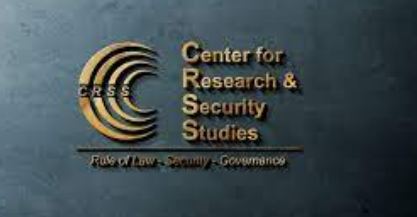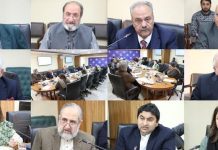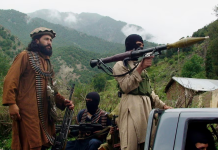ISLAMABAD, OCT 24 /DNA/ – In an international gathering of diverse voices of women leaders from Pakistan, Afghanistan, Iran, Indonesia, Uzbekistan, and Tajikistan, Afghan women’s rights took center stage, highlighting the enduring struggle they face amidst the crossfire of war and political turmoil. The discussionsat the virtual consultation on “Women’s Rights in Afghanistan – Regional Perspectives and Role of Islamic World”, organized by the Center for Research and Security Studies (CRSS), underscored the need for women’s inclusion in decision-making processes as equal partakers, given their unique perspectives and compassion they bring. The urgent call to eradicate archaic notions and empower women to lead nations for global peace and prosperity resonated strongly. The forum united voices from various nations, championing education, economic empowerment, and diplomatic pressure to safeguard the rights of Afghan women on a worldwide scale.
Ms. Zarifa Ghafari, a former Afghan mayor, noted that for decades, Afghan women have been caught in the crossfire of war, politics, and policies that played with their innocent lives. They bore the heaviest bruntand faced the most severe repercussions of power politics. The ongoing struggle of Afghan women to secure their fundamental rights is noteworthy where,despite restrictions, they persist, yet their cries often go unnoticed on the global stage.
It’s vital to recognize that globalissues won’t be resolved unless we involve women in the decision-making processes. The world today desperately needs the healing touch, the compassion, and the wisdom that women offer.
Nations should collectively act against forces that threaten global peace, security, and progress.The decisions we make today will shape the world our future generations inherit. Let’s ensure it’s one of peace, progress, and inclusivity.
“In the interest of developing a global understanding of what’s happening inside Afghanistan, fostering people-to-people connectivity – among Afghans and other nations – is crucial”, saidMs. ShokhinakhonBakhramova, a specialist on women’s issues and gender equality from Uzbekistan,while expressing concerns about the lack of information regarding the current situation in Afghanistan. She highlighted the progress made in Uzbekistan, including the criminalization of domestic violence, as an inspiring example/ modelfor other countries to follow.
“Post Taliban’s takeover of Afghanistan in August 2021, this is the first time and forum where I have seen and heard real women and voices from Afghanistan”, noted Bakhramovain her concluding remarks while appreciating the nature of the gathering organized by CRSS.
Bahar Fayeghi, an IranianPh.D. scholar at the University of Edinburgh, acknowledged the challenges faced by Afghan women in Iran due to issues like patriarchy and government policies that limit their basic rights. Despite these challenges, Afghan women have demonstrated remarkable courage, determination, and resilience. Notably, when Afghan children were barred from attending schools, Afghan women spearheaded an education movement by creating self-regulated schools, predominantly managed and taught by female teachers. This drive also translated into the emergence of Afghan female writers, athletes, and artists in Iran.
Fayeghi lamented the regression of women’s rights in Afghanistan and urged neighboring nations, including Iran, to reform their policies. She emphasized the vast potential Afghan women hold and the benefits of fostering their growth both for host countries and Afghanistan itself.
Alin Mardiah, an educationist from Indonesia,noted that there are devastating consequences of women’s limited access to education,economic opportunities, gender disparities, health outcomes, empowerment, and societal development.To attain women’s rights in Afghanistan, collective and global efforts are crucial at the core of this coordination.
Mardiahsuggested providing humanitarian aid to support Afghan women affected by the conflict and displaced and supporting local women’s organizations and NGOs financially and logistically.She underscored the significance of women’s education programs and online learning initiatives, advocating for funding and support from international partners.
The participants including – eminent scholars, civil society activists, and astute analysts from Pakistan, Afghanistan, Iran, Indonesia, Uzbekistan, and Tajikistan – passionately underscored the essentiality of education for Afghan women, emphasizing that it’s a fundamental humanitarian right, not a luxury. They asserted that while alternative income sources like handicrafts can aid women’s economic stability, they cannot replace education. Highlighting Afghanistan’s regression amidst a world advancing with modern technologies, they expressed their frustration over the sudden loss of women’s achievements; contrasting Afghanistan with other Muslim-majority countries where women enjoy educational and occupational rights.
Showing solidarity with the cause of the rights of Afghan women, the diplomatic community from the US, UK, EU, and Australia also marked its virtual presence.
The forum emphasized a multi-faceted approach to uplift Afghan women. Key recommendations included integrating online education through female madrasas and the formation of a unified Muslim women leaders’ committee championing women’s rights. Economic empowerment was prioritized, encouraging entrepreneurship, fostering international business partnerships, and amplifying the reach of Afghan-made products. The forum strongly advised exerting diplomatic pressure on the Taliban to ensure women’s educational and professional rights. It also underscored the importance of platforms addressing Afghan women’s mental well-being and innovative solutions to connect them to global markets, emphasizing the collective effort needed at both local and international levels.

















